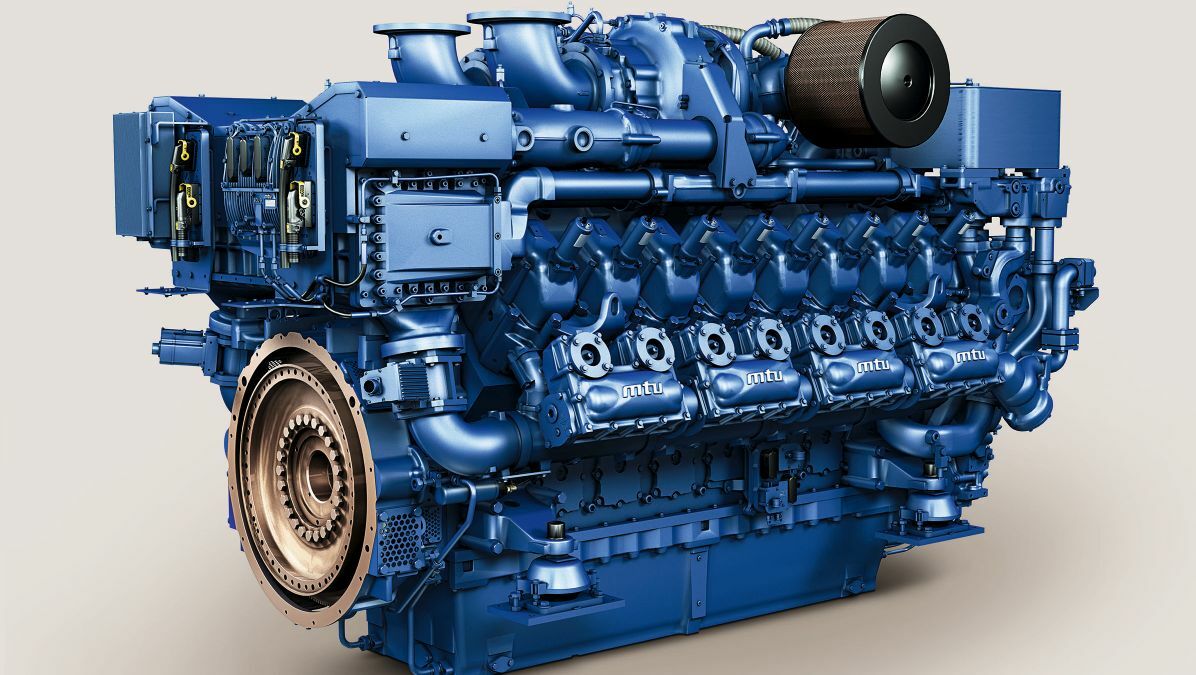Enhance Your Fleet with Engines For Africa's Choice
A Complete Guide to Choosing the Right Engine for Your Job
Selecting the appropriate engine for your job is a vital choice that can considerably influence its total success. It is critical to carefully specify your task needs, review performance demands, and take into consideration user-friendliness alongside other necessary factors. Furthermore, recognizing the area support offered and looking at price effects can even more fine-tune your option. Each of these components plays a crucial role in making sure that your chosen engine not only fulfills prompt purposes but also aligns with long-lasting goals. As we check out these factors to consider, you might discover that the nuances of each element expose greater than at first expected.
Specify Your Job Requirements
Specifying your job needs is a crucial action in selecting the ideal engine for effective implementation. A thorough understanding of your job's objectives will certainly guide you in recognizing the abilities and attributes needed from an engine. Begin by outlining the extent of your project, including the wanted functionality, target market, and the particular end results you aim to accomplish.
Following, consider the technological requirements that line up with your task goals. This includes reviewing the compatibility of the engine with existing systems, in addition to the shows languages and frameworks that will certainly be made use of. Additionally, examine the degree of scalability required to fit future development or changes popular.
Spending plan restrictions likewise play an essential duty in defining your job requires. Establish a clear monetary framework to guide your decision-making process, making sure that the engine selected fits within your budget while supplying the essential functionality.
Evaluate Performance Demands

Following, consider the scalability of the engine. Evaluate whether it can manage raised work as your task expands. Engines that support horizontal scaling are typically better for bigger applications. In addition, evaluate the engine's efficiency under various problems, such as peak use circumstances, to guarantee it fulfills your integrity criteria.
Consider Convenience of Usage
While technological requirements are necessary, the ease of use of an engine can dramatically impact the development process and general job success. An user-friendly user interface, clear documents, and structured operations can significantly decrease the knowing curve for designers, enabling them to concentrate on imagination and problem-solving as opposed to coming to grips with complicated tools.
When assessing an engine's simplicity of usage, think about the onboarding experience. A well-structured introduction, total with tutorials and sample projects, can help with a smoother transition for brand-new customers. In addition, the clearness and comprehensiveness of the engine's documentation play a crucial function; comprehensive guides and API referrals can equip programmers to repair and apply functions effectively.
An engine that allows for simple modifications can be extra straightforward, as programmers can tailor it to fit their particular requirements without extensive headache. find out here now Inevitably, picking an engine that prioritizes convenience of usage can lead to a much more satisfying and productive development experience.
Assess Area and Support
The toughness of an engine's neighborhood and assistance network can significantly influence a designer's experience and success. A dynamic area frequently indicates a wide range of shared understanding, sources, and fixing assistance that can boost your project's development process. When assessing an engine, think about the size and task level of its area. Bigger neighborhoods normally supply extra online forums, tutorials, and third-party plugins, enabling developers to discover solutions a lot more efficiently.
Furthermore, assess the schedule of official support channels. Dependable paperwork, receptive consumer support, and normal updates are necessary for addressing technical problems and maintaining your task on course. Engines For Africa. Active communities likewise promote cooperation, providing opportunities for networking and comments, which can be important, specifically for small groups or independent programmers
Furthermore, investigate the presence of community-run occasions, such as meetups or hackathons. These celebrations can improve your understanding of the engine while attaching you with potential partners and knowledgeable customers. In summary, a robust community and support system not only improve development however likewise develop an atmosphere for learning and development, eventually boosting the likelihood of your job's success.
Contrast Cost and Licensing Choices
Budget plan considerations play a crucial duty in selecting the right engine for your project, as click for source the price and licensing choices can considerably impact both short-term costs and long-term practicality. Engines For Africa. Various engines provide varying rates frameworks, which can include one-time purchase fees, registration models, or revenue-sharing arrangements based upon your task's incomes

Licensing options additionally differ significantly. Some engines are open-source, offering versatility and community-driven support, while others might require proprietary licenses that restrict usage and circulation. Recognizing the ramifications of each licensing design is essential, as it affects ownership rights, future scalability, and possible lawful obligations.
Final Thought
Finally, selecting the ideal engine for a project demands a detailed evaluation of defined task requirements, performance demands, ease of use, community support, and price considerations. By systematically dealing with these important variables, Web Site decision-makers can make sure placement with both current and future task demands. A knowledgeable selection ultimately boosts the likelihood of project success, making it possible for efficient resource allocation and taking full advantage of prospective outcomes within the specified budgetary restrictions.
Picking the proper engine for your project is a crucial choice that can significantly influence its total success.Defining your job requires is a vital step in choosing the ideal engine for successful application. A comprehensive understanding of your task's purposes will direct you in recognizing the abilities and functions needed from an engine.Once you have a clear understanding of your task requires, the next step is to evaluate the efficiency needs of the engine.In final thought, selecting the appropriate engine for a task demands a complete evaluation of specified job requirements, efficiency demands, simplicity of use, community support, and price factors to consider.